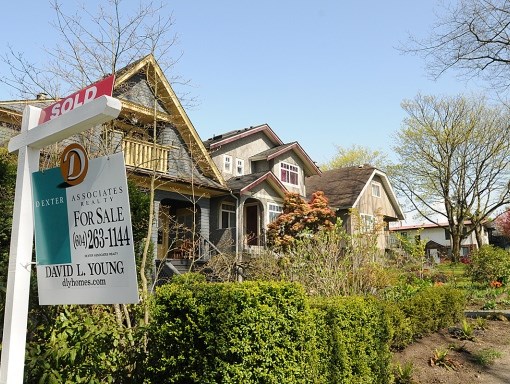Housing sales, prices and starts across Canada will plunge this year and stay muted for at least a year, with Western provinces taking the worst hit, according to Moody’s Analytics.
Other analysts, however see a more brief, shallow downturn that could reverse as early as June.
“The COVID-19 pandemic along with the collapse in oil prices will create a perfect storm this year for both home sales and residential construction,” according to Abhilasha Singh, an economist at Moody’s Analytics who authored the Canada Housing Outlook, released April 30.
The negative effect will be felt acutely in the West because of its economic makeup, the report states.
“British Columbia is most exposed in terms of leisure/hospitality and trade, while the Prairie provinces—which were already dealing with softening demand for energy—are most vulnerable to the collapse in oil prices,” Singh said.
Moody’s is forecasting a national contraction of the baseline GDP by 15 per cent in the second quarter of 2020, compared to year earlier, while the unemployment rate will nearly doubles] to 10 per cent. This will cause housing starts to fall to 145,000 annualized units by the end of 2020, compared with 210,000 in early 2020.
While the report highlights the “extraordinary measures” taken to lower lending costs, including slashing the Bank of Canada interest rate to 0.25 per cent in March and a subsequent reduction in the five-year mortgage to below 3 per cent, it warns home buyers, worried about job losses, will remain sidelined.
“Not even lower interest rates will be enough to save the housing market,” Singh said.
As a result, Moody’s Analytics expects Canadian home prices to suffer a peak-to-trough decline of about 10 per cent.
“As the outlook begins to improve in early 2021, house prices are expected to rebound,” the report notes.
Nationally, the composite house price index is forecast to decline 2.7 per cent this year and 3.6 per cent in 2021, but increase in 2022.
In comparison, home prices in Metro Vancouver are forecast to drop 4.2 per cent this year and a further 6 per cent next year and continue to decline by 2 per cent in 2022 before a tepid recovery three years from now.
Calgary, which saw housing sales plunge 63 per cent by mid-April compared to a year earlier, according to the Calgary Real Estate Board and RBC Economics, could suffer the worst house price decline in Canada.
Moody’s forecasts Calgary home prices falling 8.3 per cent this year and 8.8 per cent in 2021, though it projects a potential double-digit price increase by 2023.
RBC Economics and the Canadian Real Estate Association (CREA) forecast a more shallow and shorter downturn in the housing market due to COVID-19 and its trailing economy malaise.
CREA expects to see housing sales returning to a strong pace in 2021.
“This will be a temporary shock,” agreed Robert Hogue, of the macroeconomic and regional analysis group with RBC Economics, who says the recovery could start as early as mid-2020.
“We expect stronger activity to resume once social distancing orders are relaxed. Our baseline assumption is sometime in June. Exceptionally low interest rates will help spur the recovery,” Hogue said.
“Our current view is the recovery will stretch into 2021 in most markets,” he added. “Odds of a major price drop are still low.”
The exception to this rosy scenario is the Prairies, Hogue warns.
“ The plunge in crude oil prices are poised to further drive [Prairie home] prices lower,” he said.



